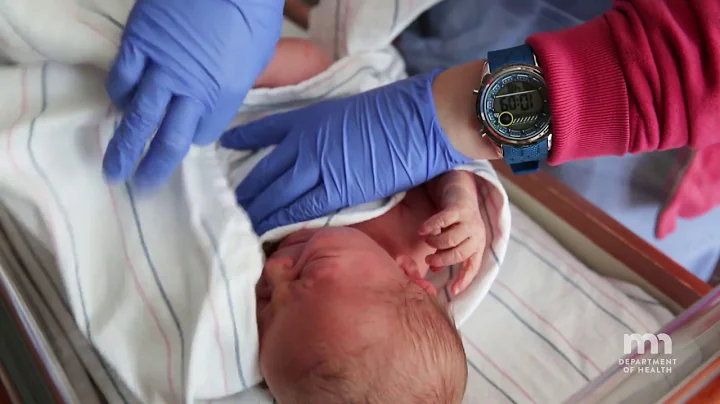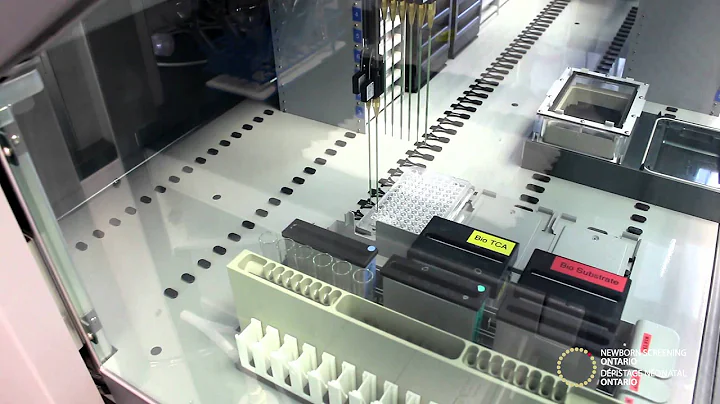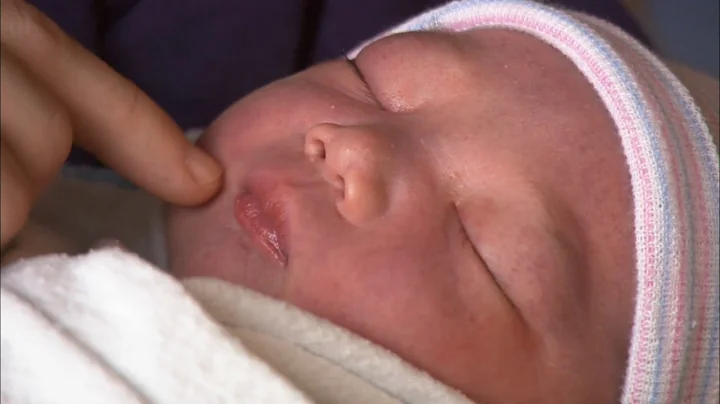[Source: Guangzhou Daily Client]
When a baby is born, new parents are often told to collect blood from the baby for newborn disease screening . Some parents are very confused about this, "The baby is just born and looks very healthy. Why do we have to collect blood? Is screening necessary?"
my country is a country with a high incidence of birth defects. Currently, hundreds of thousands of babies with defects are born every year. Newborn disease screening is an important measure to prevent and treat birth defects.
html June 28 is the International Newborn Screening Day. The health of the baby is the most important thing for a family, but there may be some disease-causing genes in the parents’ bodies that they are not aware of, and these genes may be passed on to the baby.The mother discovered that the skin of her 17-day-old baby had gradually darkened over the past week, but she did not pay attention to it. Later, the family found that the baby had poor reaction and poor appetite and went to the Fifth Hospital of CUHK for treatment. The test showed that the potassium was 6.65mmol/L (normal value). (3.5-5.5mmol/L), sodium 131.40mmol/L (normal value is 135-145mmol/L).
Director of the Neonatology Department Tan Ning said, "The child's blood potassium is high. If not treated as soon as possible, he may cardiac and respiratory arrest at any time, which is very dangerous. After symptomatic treatment, the child's electrolytes and internal environment remain stable, and he is temporarily out of danger. , combined with its clinical manifestations, I judged that it may be some kind of congenital disease. After precise testing, it was found that the child's 17α-hydroxyprogesterone was increased, while , cortisol, , and aldosterone were decreased. Further genetic testing revealed that there was a complex complex in the CYP21A2 gene. The combined mutation was diagnosed as congenital adrenocortical hyperplasia , complicated by salt-wasting crisis. In this case, the child's parents were both carriers of the disease gene, and the mutated gene was passed on to Xiaobao, causing the child to become ill. "
. Under the precise treatment of neonatology medical staff, the child was out of danger, all blood indicators returned to normal, and he has been discharged from the hospital.
![[Source: Guangzhou Daily Client] When a baby is born, new parents are often told to collect blood from the baby for newborn disease screening. Some parents are very confused about this.](https://cdn-dd.lujuba.top/img/loading.gif)
Popular science knowledge
Congenital adrenal hyperplasia is a group of diseases caused by congenital defects of one or several enzymes in the adrenocortical hormone biosynthetic enzyme system, which changes the levels of cortisol and other hormones. It can be divided into 5 categories Subtype, is autosomal recessive and is inherited.
Its clinical manifestations depend on the type and degree of defective enzymes. Due to changes in the levels of glucocorticoids , mineralocorticoids , and sex hormones, corresponding symptoms and signs appear, such as abnormal genital development, electrolyte balance imbalance, blood pressure changes, and Growth retardation, etc.
Director Tan Ning said that there are many types of birth defects with complex causes, which can be caused by chromosomal aberrations, gene mutations and other genetic factors or environmental factors, usually including chromosomal abnormalities, congenital malformations, hereditary metabolic diseases, deafness and intellectual disability, etc. As a special maternal and infant health care technology implemented during the newborn period, newborn disease screening can effectively prevent the mortality or disability rate of children with most birth defects such as congenital adrenal hyperplasia.
About newborn disease screening
Neonatal disease screening refers to the use of fast, simple, and sensitive laboratory testing methods during the newborn period to detect some congenital and genetic diseases that are life-threatening, endanger growth and development, and cause children to be disabled. Through testing, children can be detected before the disease manifests, and early screening, early diagnosis, and early treatment can minimize the harm of birth defects and improve the quality of life of children.
Q&A: Does the baby need to be tested even if he looks normal?
needs to be tested. Newborn disease screening is the first health "security check" for babies after birth.
Newborns with genetic metabolic diseases often look normal when they are born, but will develop some abnormal symptoms later on. If treatment is performed after clinical symptoms appear, irreversible damage may have occurred.
Text and pictures/Guangzhou Daily · New Flower City Reporter: Chen Zhijia
Correspondent: Jiang Xin
Guangzhou Daily · New Flower City Editor: Tong Dan
Statement: The copyright of this article belongs to the original author. If there is an error in the source or infringement of your legal rights, You can contact us via email and we will handle it promptly. Email address: [email protected]





















